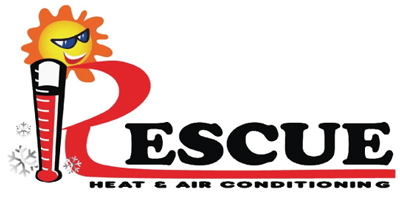
If you’re uncertain whether your Alice home has poor indoor air quality (IAQ), it possibly does.
We are indoors a lot. In reality, we’re in a building up to 90% of the time, according to the U.S. Environmental Protection Agency. And the air inside homes could be 2–5 times more contaminated than outdoors, which might create long-term health issues.
Most Common Causes of Bad IAQ
We’ve made a list of the most frequent origins of poor IAQ, the problems they create and how you can take care of these indoor air pollutants. If you’re concerned about the air inside your house, we advise consulting with a specialist like Rescue Heating & Air about which products are a good fit for your home.
Volatile Organic Compounds
Volatile organic compounds, or VOCs, are vapors emitted from everyday household items.
They’re found in paint and stains along with:
- Furniture
- Carpet
- Building materials
- Cleaning products
- Cosmetics
- Air fresheners
- Candles
When these fumes accumulate in your home, they might irritate your eyes, nose and throat. They might also result in headaches and nausea. Regardless of whether your home is in a rural or industrial location, an EPA study found indoor levels of these fumes can be 2–5 times greater than the air outside your home.
Always adhere to the manufacturer’s guidelines when painting or cleaning. Cracking a window can help chemicals dissipate faster.
Air purification systems can also help. This system partners with your heating and cooling equipment to clean indoor air. When looking for one, ensure it’s specifically designed to eliminate VOCs.
Dust and Pet Dander
Dust and pet dander can trigger health problems like asthma and allergies, especially when it constantly gets moved by your house’s comfort equipment. While you can vacuum more frequently and buy an improved air filter, an air filtration system might be a better fit.
This unit hooks to your HVAC equipment to deliver strong filtration. Some types offer hospital-level filtration for eliminating particles and bioaerosols.
Persistent Odors
New homes are tightly sealed to increase energy efficiency. While this is good for your energy expenses, it’s not ideal for your IAQ.
Stuffy odors can stick around for a greater amount of time as your house is pulling in reduced fresh air. Since keeping your windows open throughout the year isn’t a possibility, here are two ways you can make your indoor air smell better.
An air purification system is put in your ductwork to wipe out odors before they get released again. Find one with a carbon filter and the capability to eliminate harmful VOCs. This equipment can also help keep your family healthy by getting rid of most bacteria and common allergy triggers like pollen and mold spores.
A ventilation system takes out stuffy indoor air and substitutes it with fresh outdoor air. There are two kinds of units (heat recovery and energy recovery), so call our professionals for more details on which kind is best for your residence.
Uneven Humidity
It’s essential your residence’s humidity remains even. Air that has too much moisture can create mold, while dry air can cause respiratory symptoms.
Our techs suggest 40–50% for top comfort. To keep yours even, think about getting a whole-home humidifier or whole-home dehumidifier with your heating and cooling equipment.
Instead of having to lug a humidifier from room to room, this solution delivers balanced humidity throughout your house.
Carbon Monoxide
Carbon monoxide is colorless gas you can’t smell. It occurs when there’s insufficient combustion in fuel-burning units, like gas heating systems, water heaters or fireplaces.
It presents an extreme health risk. In little levels, it can lead to flu-like ailments like headaches and nausea. It may be deadly in big levels.
We suggest annual furnace maintenance to double-check your unit is running like it should. This job allows our pros to see problems before they get bigger, including malfunctions that can create carbon monoxide leaks.
The best method to keep your home free of carbon monoxide is to get detectors. These alarms need to be on all floors near bedrooms and living areas.
Improve Your Residence’s Air Quality with the Rescue Heating & Air Experts
Informed that your residence has poor air quality but not sure how to make it better? Or unsure which solution is ideal for you? Give our approachable HVAC specialists a call at 361-265-4371 or contact us online right away. With free estimates and expert service, we’ll help you find the ideal equipment for your needs and budget.
